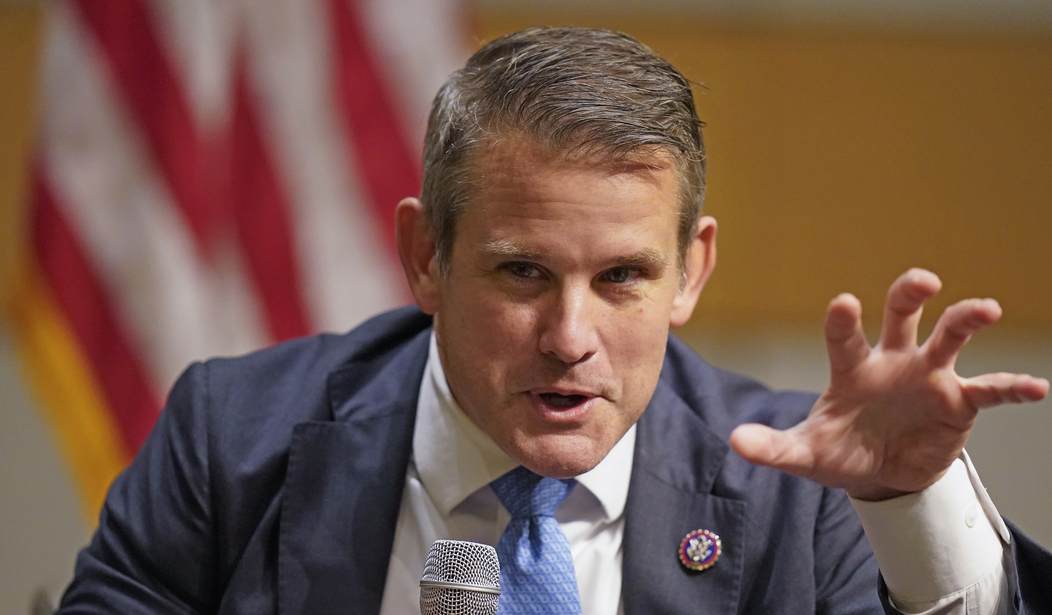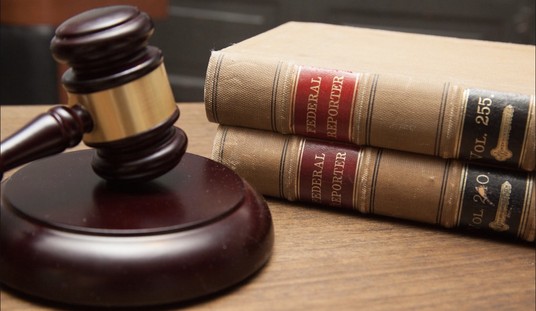I lost whatever respect I might have had for former Congressman Adam Kinzinger when he said he was open a ban on so-called assault weapons in 2022. Since his departure from Congress, Kinzinger has embraced a number of anti-gun proposals, even telling a gathering in Chicago in 2023 that "“Second Amendment people should be on the front line of gun control." Kinzinger didn't mean on the front lines defending against gun control. No, he means we should be advocating for "reasonable solutions to gun violence" like banning young adults from keeping and bearing arms.
As dumb as those comments were, they pale in comparison to Kinzinger's latest invocation of the Second Amendment, which he now insists is about "guaranteeing a state a right to a militia."
I’m not sure why Gavin Newsome doesn’t activate the rest of his army guard to prevent the president from it or force him to overrule it…. Then fight on the second amendment guaranteeing a state a right to a militia. How can a state have a militia if the president can simply…
— Adam Kinzinger (Slava Ukraini) 🇺🇸🇺🇦 (@AdamKinzinger) June 10, 2025
Since that post Kinzinger has doubled down on his hare-brained theory, both on X (where he was quickly rebuked by Charles C.W. Cooke):
This is astonishingly illiterate. See, inter alia, Article I, Section 8, Clause 15 and Article II, Section 2. Moreover, as Scalia noted, it’s precisely *because* the federal government has plenary power here that the individual rights reading of the Second Amendment (the Standard… https://t.co/dSv2vG8oPt
— Charles C. W. Cooke (@charlescwcooke) June 10, 2025
and in a post on his Substack, where he argues:
If we believe in the Second Amendment’s invocation of a state-based militia, we need to reconcile it with the uncomfortable truth that the National Guard, as currently structured, doesn’t really fit that mold. Either we redefine what we mean by “militia,” or we face the fact that state-controlled military forces don’t exist in a meaningful way when they can be federalized at will.
Kinzinger probably should have read through the Heller decision before declaring himself an expert on the intricacies of the Second Amendment. As the Supreme Court made clear, the amendment has nothing to do with guaranteeing a state a "right to a militia". Nor does it require serving in a militia in order to keep and bear arms. As Justice Antonin Scalia wrote:
The Second Amendment is naturally divided into two parts: its prefatory clause and its operative clause. The former does not limit the latter grammatically, but rather announces a purpose. The Amendment could be rephrased, “Because a well regulated Militia is necessary to the security of a free State, the right of the people to keep and bear Arms shall not be infringed.”
The only right referred to in the Second Amendment is the right of the people to keep and bear arms. But Scalia also explained, in great detail, what the prefatory clause of the amendment actually meant (and means).
In United States v. Miller, we explained that “the Militia comprised all males physically capable of acting in concert for the common defense.” That definition comports with founding-era sources. Petitioners take a seemingly narrower view of the militia, stating that “[m]ilitias are the state- and congressionally-regulated military forces described in the Militia Clauses." Although we agree with petitioners’ interpretive assumption that “militia” means the same thing in Article I and the Second Amendment, we believe that petitioners identify the wrong thing, namely, the organized militia. Unlike armies and navies, which Congress is given the power to create (“to raise … Armies”; “to provide … a Navy,” Art. I, §8, cls. 12–13), the militia is assumed by Article I already to be in existence. Congress is given the power to “provide for calling forth the militia,” and the power not to create, but to “organiz[e]” it—and not to organize “a” militia, which is what one would expect if the militia were to be a federal creation, but to organize “the” militia, connoting a body already in existence.
What about the security of a free state? Once again Kinzinger is guilty of a gross misreading of the Amendment. Once again quoting Scalia:
The phrase “security of a free state” meant “security of a free polity,” not security of each of the several States as the dissent below argued. Joseph Story wrote in his treatise on the Constitution that “the word ‘state’ is used in various senses [and in] its most enlarged sense, it means the people composing a particular nation or community.” It is true that the term “State” elsewhere in the Constitution refers to individual States, but the phrase “security of a free state” and close variations seem to have been terms of art in 18th-century political discourse, meaning a “ ‘free country’ ” or free polity. Moreover, the other instances of “state” in the Constitution are typically accompanied by modifiers making clear that the reference is to the several States—“each state,” “several states,” “any state,” “that state,” “particular states,” “one state,” “no state.” And the presence of the term “foreign state” in Article I and Article III shows that the word “state” did not have a single meaning in the Constitution.
The Second Amendment doesn't protect the right of states to form a militia. The phrase "security of a free state" doesn't even mean a particular state, as Scalia made clear, and the "well-regulated militia" the Second Amendment speaks of is only one reason why we the people possess the individual right to keep and bear arms.
There's simply no Second Amendment argument to be made about Donald Trump federalizing portions of the California National Guard to respond to the riots in Los Angeles. Presidents have federalized the militia (and when it came into existence, the National Guard) dozens of times throughout our nation's history going back to 1794, when Washington called out state militias to respond to the Whiskey Rebellion in western Pennsylvania.
Either Kinzinger knows all this and is willfully trying to deceive his audience, or he's an ignorant buffoon who thinks he's much smarter than he really is. I won't hazard a guess about what's more likely, but either way folks are better off tuning out what he has to say.









